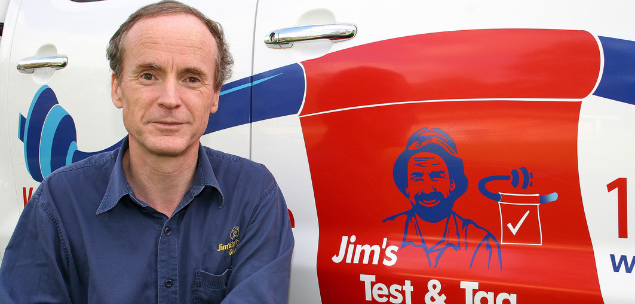Byline: Jim Penman, the founder of Australia’s largest home-service franchise, Jim’s Group.
Change character, and I believe you can change the world. I strongly believe this is also the case in business.
The real key to success is temperament
People think the key to success is knowing things, and that does matter, but the real key I believe is temperament. If someone possesses the right character, they can learn the necessary skills and tools on the job. If they don’t have this foundation, no education will help.
At Jim’s Group, my strategy in hiring is to choose based on character, and from there see how they go in the role. This has proven successful as my best staff are not those who have the highest degrees or the most experience, they’re the ones with the best character. There was a young man, Joel, who began working for me on a casual basis doing basic, unskilled tasks, and he is now one of my senior managers. I hired him and keep him now because of the kind of person he is. I implore businesses to seek out employees that firstly have a strong character but secondly have valuable work background and experience. You will run into issues if you purely focus on qualifications.
Brains are not in short supply
IQ and knowledge are not in short supply. It’s character and a work ethic that are in short supply. This is a real problem that needs to be addressed, especially within school and university environments. We waste billions on education trying to train up people’s knowledge as if knowledge is what counts, and yet we undermine character by not letting children and young adults work on their soft skills, or secure jobs or internships where they could learn character.
I see my failures in character rather than intelligence as why I have not done better. I have an intense ability to focus, a disregard for small talk, and an emotional disconnect. These shortcomings have led me to set up an organisation where employees who possess the characteristics I lack can be recognised and flourished. While innovation is important in what we do, the changes we make often stem from these employees rather than any brilliant ideas of mine. If you or someone in your business also lacks the above skill set, find an employee that can balance this out.
Creating a culture of collaboration, rather than competition
Creating a work culture and environment that places an importance on humility and helping each other out will promote growth. If employees are competing to be the ‘smartest’ or ‘most capable’, this will not only damage relationships and build pride, but it will diminish teamwork. Although healthy competition can promote productivity at times, collaboration will help employees feel more inspired, nurtured and it can take the ego out of any situation.
By listening and working alongside others, you will learn a huge amount about what you should – or shouldn’t – be doing in order to improve your business. There is always more to learn. Be open to advice! My hope is that the newly released biography about my life and business, Jim’s Book, shines light on these important fundamentals of business.
People buy emotions, not products
I believe my own success is largely due to an unreasonable passion for customer service. I find that in business the people who succeed the best are not those who are most money hungry, but those who are actually dedicated to doing things well for their customers.
These days, consumers are bombarded with endless choices and recommendations for products and services. So, how do they make their decision? And what can you do to ensure they end up choosing you? Businesses need to ensure that each employee genuinely cares about the customers they look after and are always thinking of ways to improve. This nurturing process will convert into more leads, follow up purchases and make the customer feel like they’re not just another number.
Jim Penman is the founder of Australia’s largest home-service franchise, Jim’s Group. The newly released biography about him, Jim’s Book, delves deep into how he ignored conventional thinking to turn a few mowing rounds into a corporate juggernaut.

